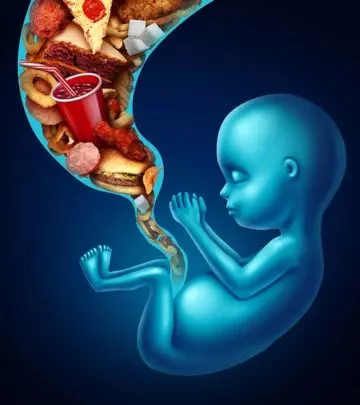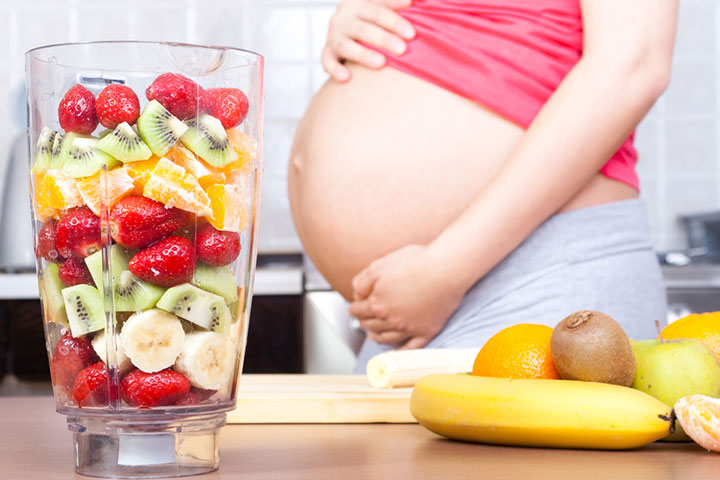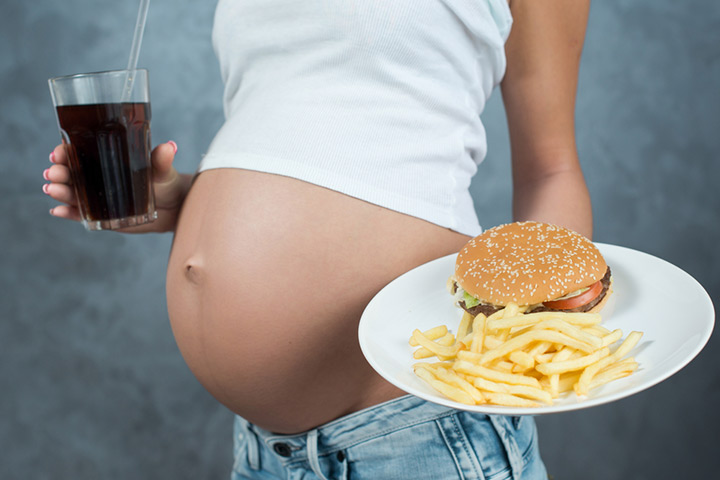
Image: Shutterstock
Only a mother truly knows the woes of having a child who is a fussy eater. Every mealtime looks like a painted warzone, with spoons flying here and there and peas and veggies being spat out like bullets from guns. And that’s just about the story of every single day with no exceptions.
On that note mommies, here’s something that might upset you: you can’t really blame your baby for being a fussy eater. The fault, dear moms, lies in what you ate when you were pregnant!
Quite a bit of a shocker, isn’t it? Knowing it all comes back to you? Blame it on science, but it is still the truth.
According to research conducted by the Monell Chemical Senses Research Institute in Philadelphia, what you eat when you are pregnant can directly shape your baby’s future food preferences (1). Guess what they say is true then, first impressions are the last impressions after all. Or in this case – flavors.
The research explains that the food you eat when you are pregnant, more precisely the flavors of them, enters into the amniotic sac of your child, mixing with the amniotic fluid. Now the infant, when in the womb, is in the habit of gulping down a lot of the amniotic fluid. This means that the baby would be tasting the flavors of the food you’ve eaten while still in the womb, and hence, can take a liking to it.
To come to this conclusion, the researchers of the study gave one-half of the pregnant participants garlic capsules and gave sugar capsules to the other half. After the consumption of these, the researchers took a sample of the amniotic fluid of the participants and requested a group of people to smell this fluid. The group was easily able to identify the smell of garlic in the fluid. Now, taste has got a lot to do with odor, and the presence of the garlicky odor in the amniotic fluid proved that babies would become familiar with the flavors their mothers consumed frequently.
That said, if you don’t want your baby to hate carrots and peas and eat greens in peace, here are some things you can do:
Introduce New Flavors
Babies remember the flavors they liked in the womb and will naturally like those flavors better. This can be proved with another study in which pregnant women were asked to drink 300ml of either water or carrot juice for 4 days in a week, for three continuous weeks in total, during the last trimester (2). Post that, they were asked to continue the same during first 2 months of breastfeeding. The group of women who had carrot juice faced lesser difficulty in helping their babies develop a taste for the carrot-flavored cereals than those who didn’t. Hence, keep introducing new flavors you want your baby to prefer.
Skip The Junk Food
If you eat more junk food, you can expect your child to have a natural and strong affinity for nutrient-lacking meals when they grow up. Hence, cutting down on it while you’re still pregnant would be wise. Besides, it will be good for your health too, as your body requires more nutrients when you are pregnant.
The only problem here is that you might be allergic to certain foods or you may abhor the taste of some yourself. In that case, make sure you do your research and pick foods that contain essential nutrients and meet all the dietary requirements while simultaneously suiting your taste palate.
Moreover, a couple of other factors can influence a child’s food choices too such as peer pressure, cultural background and even popular media. These factors have the potential of overriding this study’s results. So, take it with a pinch of salt and do all you can to have a healthy diet when pregnant.














